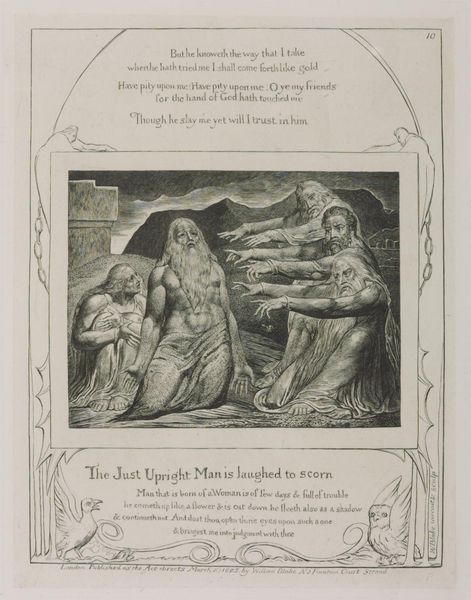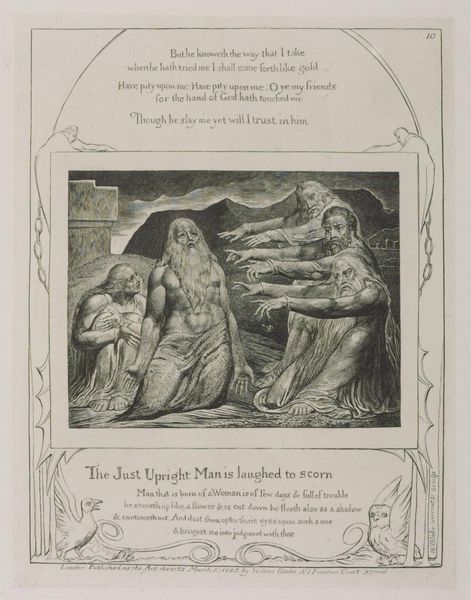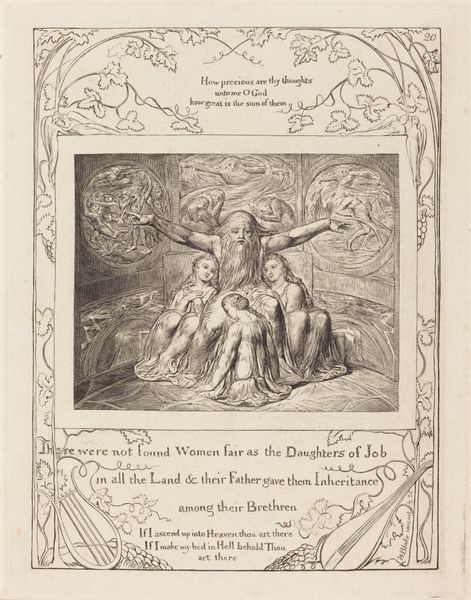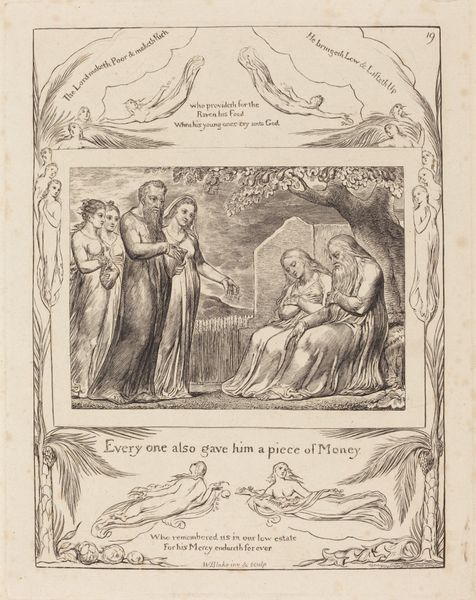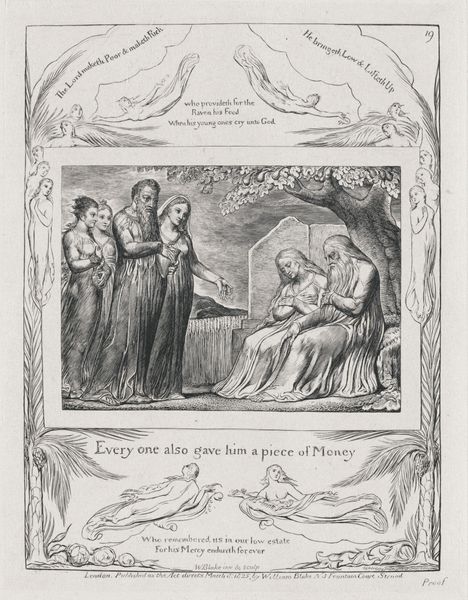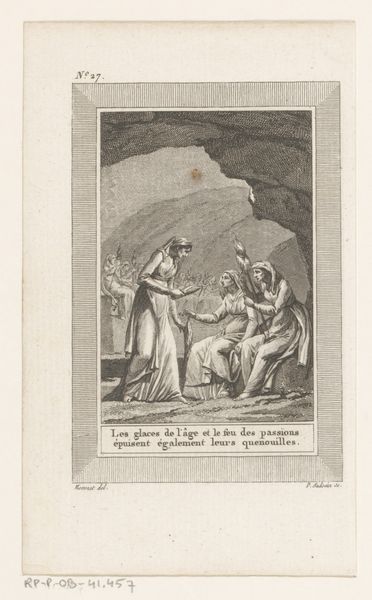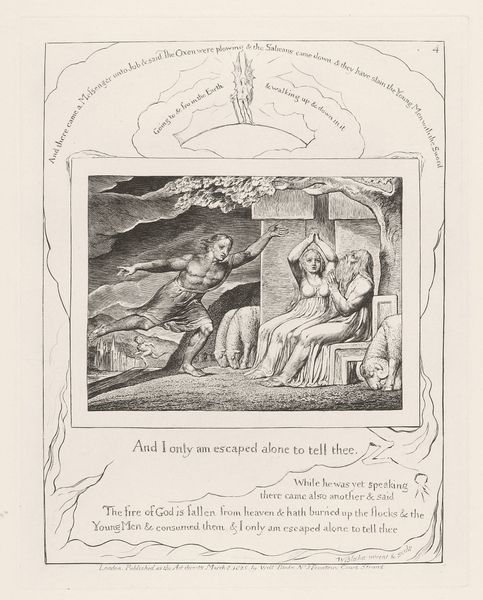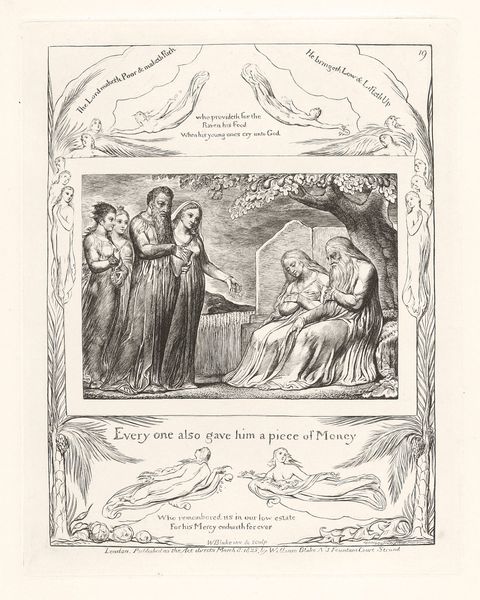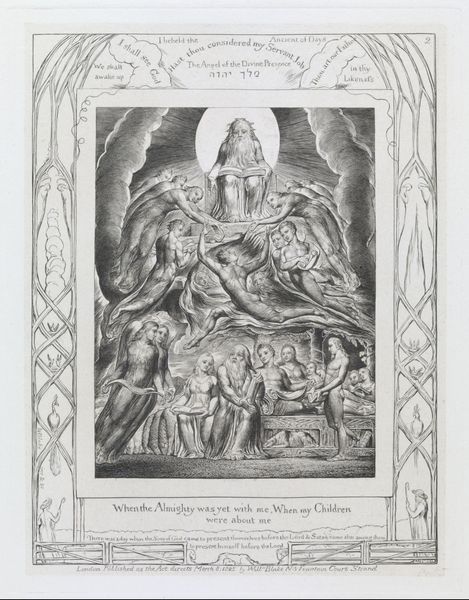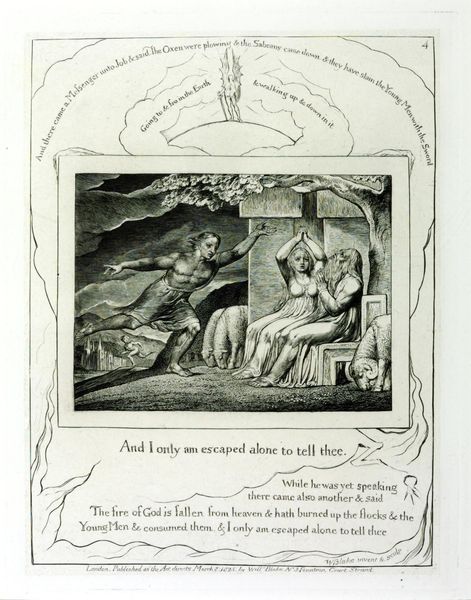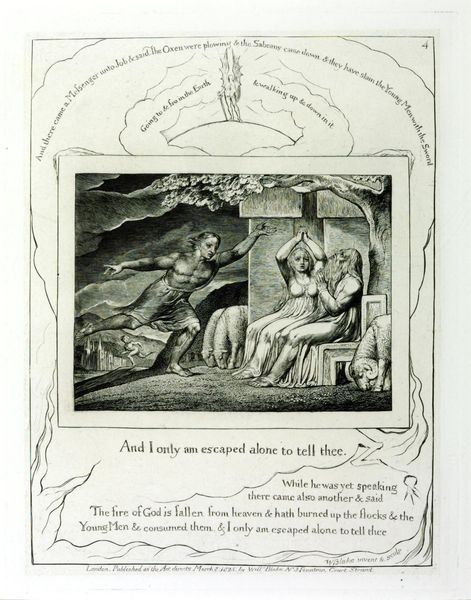
drawing, print, etching, engraving
#
pencil drawn
#
drawing
#
narrative-art
# print
#
etching
#
pencil sketch
#
old engraving style
#
men
#
pen work
#
history-painting
#
engraving
Dimensions: plate: 8 1/2 x 6 5/8 in. (21.6 x 16.8 cm) sheet: 16 3/16 x 10 7/8 in. (41.1 x 27.6 cm)
Copyright: Public Domain
Curator: William Blake's etching, "Job rebuked by his Friends," completed between 1825 and 1826, presents a stark scene, doesn't it? My immediate response is a feeling of deep, almost unbearable sorrow radiating from Job. His posture is defeated, almost skeletal. The sheer contrast between him and his accusers speaks volumes. Editor: Blake clearly manipulates the etching process to draw attention to contrasts of spiritual suffering and physical form. We see how the very means of production highlight Job’s isolation; it reflects the industrial shifts of his time, where individual spiritual worth can be consumed and commodified. Look at the detail in Job’s weary form compared with the comparative ease suggested by the architecture—note Blake’s commentary about the values of production. Curator: Absolutely, and consider how the surrounding text integrates as part of the material and contextual composition, intertwining the image and words, making the critique that much more palpable. These figures leaning in to indict him are relentless and lack empathy, yet they claim piety. It forces a very unsettling experience for us, even centuries later. Editor: Yes, that hypocrisy stings even now! And it resonates deeply. Think about power dynamics, the social narratives around victim blaming, even today. How often are those who suffer made to feel deserving of their plight by systems around them and sometimes even their peers. Curator: And notice, Blake deliberately draws these “friends” with imposing figures but with closed, narrow vision. In the broader historical and philosophical context, Blake engages with theodicy. Job's story becomes a potent critique of power and prevailing social attitudes and a stark challenge of structures of privilege. The image works so powerfully by evoking emotion and challenging the viewer. Editor: I think this piece powerfully questions whether it's laboring or simply existing that gives us worth in society. To that end, it feels revolutionary. Thanks to Blake's skill with tools and technique he challenges viewers to question their relationships with social and material values and reconsider their responsibilities towards the marginalized. Curator: A necessary, important, difficult artistic message about our collective responsibilities, even after so many years.
Comments
No comments
Be the first to comment and join the conversation on the ultimate creative platform.
